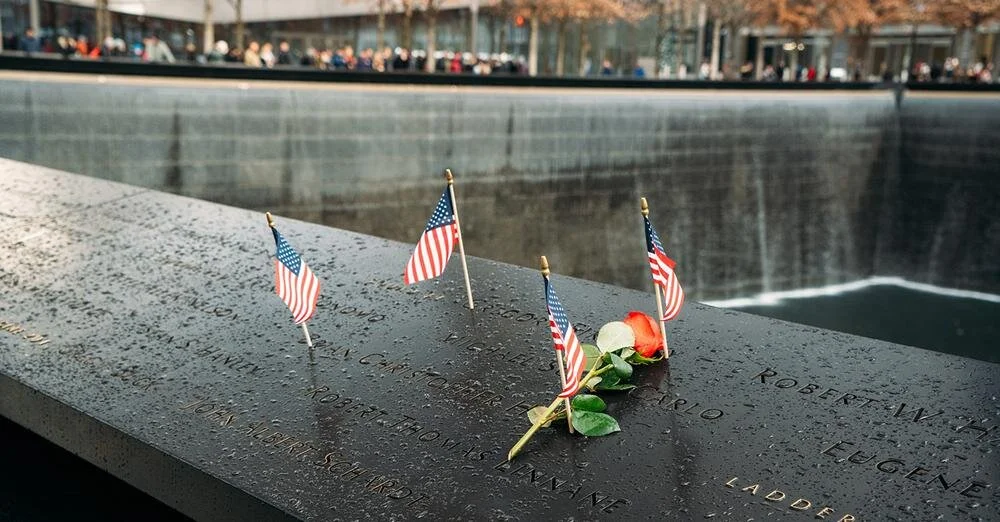HfHR's Nikhil Mandalaparthy Reflects on 9/11
HfHR Advocacy Director Nikhil Mandalaparthy's reflection on the 20th anniversary of 9/11, from the perspective of a young Hindu Indian-American, published by The Aspen Institute:
I have no historical memory of 9/11—I was four years old—but the anti-Muslim sentiments unleashed after 9/11 have impacted my life in both obvious and subtle ways.
As Hindus, we occupy a liminal space in the world of post-9/11 racism. Many of us Hindus are racialized as “brown,” but we often try to deflect racism by insisting that we aren’t Muslim; that most of us come from South Asia, not the Middle East; that our names are often derived from Sanskrit, not from Arabic.
And yet, racists don’t care. My fifth-grade classmate who called me a terrorist during recess, telling my classmates that I was “hiding a bomb in my turban,” didn’t care that I wasn’t actually wearing one (clearly, he didn’t know what a turban was). The teenagers who spray-painted Nazi swastikas and “Get Out Muslims” on my local Hindu temple and a school across the street during my senior year of high school didn’t care that they were targeting a Hindu temple and not a mosque. The man who killed Srinivas Kuchibhotla in a Kansas bar in 2017 thinking he was Iranian didn’t care that Kuchibhotla was actually Indian. As scholar Vijay Prashad writes, “the gaze of imperial whiteness does not discriminate between the dusky bodies. In its eyes, we are all Muslims.”
Thus, Islamophobia hurts all of us who are perceived as Muslim. As Hindus, we need to stand up for our Muslim siblings—not just because Islamophobia affects us, but because it’s the right thing to do. 20 years after 9/11, I wish I could say this sentiment is shared by most American Hindus. Unfortunately, our community has a lot of work to do.
Despite being targets for violence and harassment rooted in Islamophobia, segments of the Hindu community in the US have actually contributed to it in different ways. Many American Hindus trace their roots to India, and much of the Islamophobia we see in our community is fueled by rising anti-Muslim sentiments and violence in India under the Hindu nationalist government of Narendra Modi. Although Hindu Indian Americans strongly favor the Democratic party—two-thirds of Hindu respondents supported Joe Biden over Donald Trump in a survey of Indian Americans prior to the 2020 election—a small but vocal minority of conservative Hindus expressed support for Trump due to their shared Islamophobia. Several of the major American Hindu organizations have ties with Islamophobic individuals and organizations such as the Middle East Forum. Earlier this year, my organization was successful in getting a conservative American Hindu organization, the Vishwa Hindu Parishad of America, to cancel a virtual event series featuring an extremist Hindu priest from India who has publicly declared that “Islam should be eradicated from Earth” and “all Muslims should be eliminated.” On a personal level, I’m called an “Islamist proxy” on a regular basis by trolls on Twitter simply because my organization, Hindus for Human Rights, works closely with an Indian American Muslim group.
That being said, more and more American Hindus, particularly young people, are speaking up against Islamophobia. As a college student, I worked with a Muslim friend to initiate an annual interfaith concert series that was the first collaboration between our Hindu and Muslim student groups in over a decade. The progressive Hindu organizations, to which I belong, have been working for years to break down Islamophobia in our community, through Hindu-Muslim iftars and satsanghs during Ramadan, advocacy around minority rights in India, and a civil rights youth essay and art contest. I’m grateful to work with partners such as Muslims for Progressive Values and Indian American Muslim Council. Together, slowly but surely, we will counter Islamophobia in all of its forms and build a society in which we can all thrive.
Nikhil Mandalaparthy, Advocacy Director, Hindus for Human Rights
https://www.aspeninstitute.org/.../shared-reflections-on.../

